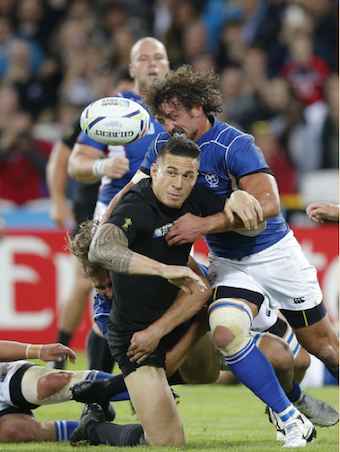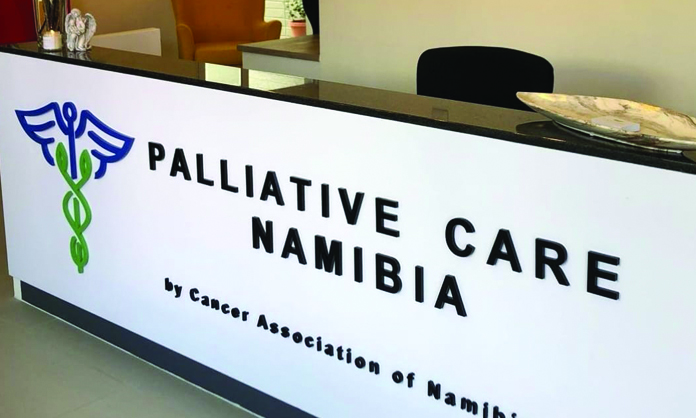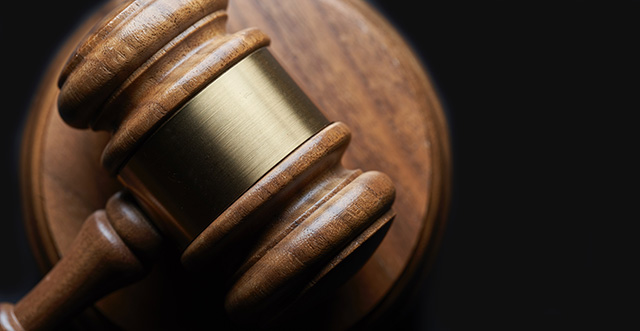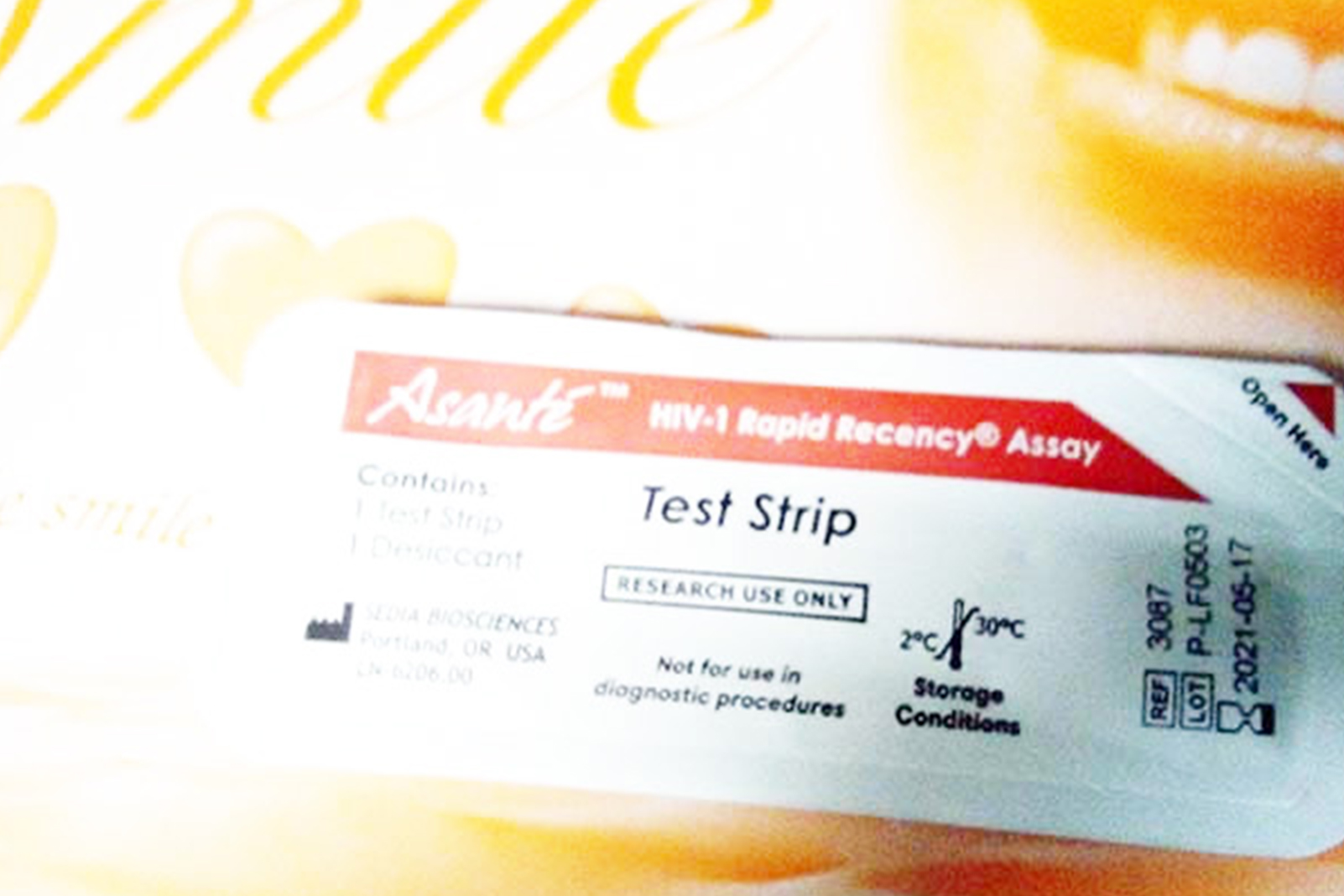JACQUES Burger’s international rugby career came to an end in unfortunate circumstances when he left the field with concussion after only nine minutes of play against Georgia on 7 October.
It brought to an end a brilliant career, during which time he established himself as one of the greats of Namibian rugby. Since making his debut as a 21-year-old in 2004, Burger has gone on to represent Namibia at three World Cups – the last two as captain – and distinguished himself as one of the top international players of his generation.
He went on to become Namibia’s sixth most capped player with 36 caps, while he captained the country 17 times – second only to Gerhard Mans on 26. But the stats only tell a part of the story and the abiding memory that will remain is of a crash-tackling colossus that instilled fear and apprehension on rugby fields around the world.
Helge Schütz (HS) of The Namibian Sport spoke to Burger (JB) about his career and his future plans.
: What do you remember of that tackle against Georgia?
: I remember making the tackle, but as soon as I did that I was out cold. I gotta knock to the ear I think, my ear is still blue, but I remember everything. I was aware of everything around me but I didn’t have any control over my actions, I couldn’t get up and I couldn’t move, so I think it was the right call for me to be taken off.
At the time I wanted to continue playing, but when I went in for the assessment they said I was out cold so I couldn’t go back on, because they try and protect the players, which is good. It was unfortunate that it happened that way but that’s the way it goes.
: How did you feel when you couldn’t go back on?
: I was gutted that I couldn’t get back on the field. I was so psyched up for the game and I believed that we could win the match. I knew my career was coming to an end and it was my second last match in my mind, but I said beforehand you never count your chickens before they hatch and enjoy each match as if it’s your last and that’s exactly how it worked out. So I had to watch the rest of the match from the sidelines. It was hard to watch but I was very proud of everybody on the field. They did an incredible job and they fought really hard.
: How did you feel when you realised that was the end of your career?
: I thought I’d be fine for the last match but then they said that the minimum amount of time you need to come back from concussion is seven days. They told me straight after the match so that was it and there was nothing I could do about it. I was obviously massively disappointed. I would have loved to end my career on a high, but it’s been great, and that’s the way it ends. With rugby you can’t plan these things. It happens when you least expect it. So be it. But I have had an incredible time. It’s been a great World Cup and I think it’s already been very successful for us, if you look at the scores and the performances that we’ve put in. It’s been brilliant and I’ve been massively proud of everybody involved.
: What do you think of the future of this team and Namibian rugby?
: I have massive belief in this team. Rohan (Kitshoff) will do a great job – he is a natural leader and he leads by example, which is great for the team. And the future looks bright with all these young guys coming through and getting the opportunity to play now. There’s enough people to step up and to fill the gap so it’s exciting times for Namibian rugby.
: Tell us about the support you received from back home.
: I think the amount of support we got throughout this tournament has been immense I’ve never experienced so much sup- port for our team as I did at this World Cup. I think we deserved it and it made us a better team – we represent the country and we want to make you guys proud and if you guys support us, it will just make us better players and a better team. The support has been incredible and I have to say thank you to everyone. It was really great to see how positive and enthusiastic people are and how much they believed in us. That really helped us a lot and hopefully we didn’t disappoint anybody.
: What was it like captaining your country at the World Cup?
: It’s such a great honour to play for your country and to be captain at a World Cup is something special. It’s always been a great experience to play next to my friends – guys whom I went to school with and grew up with, my people, and it’s always been an honour playing for my country. To be captain of my country was an extra bonus and I’ve loved every minute. It means a lot to me and it’s something that I’ll never forget. It has been an incredible experience.
: What are your plans after rugby?
: My contract with Saracens comes to an end in May next year, so then I think I’ll be done playing this game, which is sad, but it was good and I had fun. But I’d still like to be involved in rugby, and I plan to do my coaching levels, so I’d like to be involved as a defence coach somewhere.
And then I’ve got the farm back home, but I’ve got a lot to do still, I’ve to invest a lot of money and try and make it liveable. It will be a new chapter in my life and a new challenge which I’m very excited about and hopefully I’ll make a big success of it.
: You’ve had so many in- juries and operations during your career, and if you look at the damage done to your body, would you say it was worth it?
: I’ve been surprised how well my body has held out, considering what it’s been through in the last 10 years. It’s been incredible the amount of punishment it has taken and how I’ve bounced back from a lot of injuries and serious doubts whether I’ll return, but I came back and I started playing well again. The body is sore and it will never be what it was, I’ve done a lot of damage to my body and it’s well known that rugby is pretty brutal so I hope for a lifestyle as close to normal as I can get afterwards, but there are no regrets and it doesn’t bother me.
If I had to choose it again, I’ll do it all over again – I love running into people as hard as I can and see how hard I can knock them back – it’s something that’s been in me since I was a kid and I’ve loved every minute so there are no regrets. Whatever happens after rugby, you’ve just got to take that – all the aches, all the pains, you take that and you live with it. That’s what you do if you love something, you just give it 100% and you don’t really think about what happens after that.
Stay informed with The Namibian – your source for credible journalism. Get in-depth reporting and opinions for
only N$85 a month. Invest in journalism, invest in democracy –
Subscribe Now!






